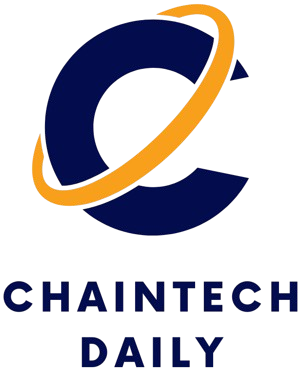
El Salvador, the first country to adopt Bitcoin as legal tender in 2021, recently reversed its decision after pressure from the IMF. What led to this change, and what were the outcomes of its nearly four-year crypto experiment?
The curious case of El Salvador
The 2021 law in El Salvador made Bitcoin (BTC) legal tender, meaning it became not just legal but mandatory for transactions. Merchants were required to accept Bitcoin, and the government started collecting payments such as taxes and fees in Bitcoin.
To facilitate this, the country launched the Chivo wallet, a government-backed mobile app designed to help Salvadorans transact with Bitcoin. The app allowed users to send, receive, and store Bitcoin, and even offered an incentive of $30 in Bitcoin for those who downloaded it.
However, the law didn’t affect the status of the U.S. dollar, which had been the official currency of El Salvador from 2001 to 2021. This meant Salvadorans who didn’t want to use Bitcoin could still use USD for all transactions. Polls from 2021 showed that only 15% of the population trusted Bitcoin, and 70% of respondents opposed its adoption.
Despite President Nayib Bukele’s media campaign and public relations efforts, the law failed to convince many Salvadorans of its value.
While the international crypto community lauded the El Salvadoran law, the residents of the country protested the law on the streets, and many in the financial world criticized the legislation’s flaws.
One key issue was that many merchants across the country were not equipped to accept Bitcoin, and the law did not address this gap.
Furthermore, a large portion of the population lacked bank accounts, and many businesses still only accepted cash payments. Many merchants were also reluctant to accept Bitcoin due to its volatility, fearing that its fluctuating value could lead to losses.
What are the results of the El Salvador Bitcoin experiment?
The nearly four-year period during which Bitcoin was legal tender in El Salvador has yielded mostly negative results, though there are a few positives to note.
On the positive side, the 2021 Bitcoin adoption helped expose more people to cryptocurrencies. A measurable outcome was the boom in tourism. The announcement of Bitcoin’s adoption piqued international interest, leading to a 20% increase in tourist arrivals in 2024 compared to 2023, with growth also seen in previous years.
However, the broader impact has been largely negative. Bitcoin failed to serve as a hedge against inflation in El Salvador. Issues such as its extreme volatility and technical difficulties with the Chivo wallet are often cited as reasons for the public’s reluctance to use Bitcoin.
Additionally, multiple hacking incidents involving the Chivo wallet further eroded trust in the cryptocurrency, leading to its limited use.
The Bitcoin law also fell short of significantly improving financial inclusion. In 2021, approximately 70% of Salvadorans were unbanked, and an even larger percentage had never used Bitcoin.
In fact, most people in the country largely ignored the digital currency. By 2024, a report from The Central American Group indicated that 92% of Salvadorans did not use Bitcoin for transactions.
While Bitcoin was intended to facilitate cross-border payments, it had little impact in this regard. In 2023, only 1.3% of remittances were made using Bitcoin. A 2022 survey also revealed that 86% of local businesses had no Bitcoin transactions, and 91.7% of respondents said Bitcoin adoption had not affected them. Only 3.6% reported an improvement in sales.
One of the key flaws in the Bitcoin adoption strategy was the timing. The law was enacted in 2021, a year following a major crypto rally fueled by Bitcoin’s halving.
Historically, bull markets are followed by downturns, and the law was passed just before another crypto winter began. The sharp Bitcoin crash in 2022 only served to further discourage Salvadorans from using the currency.
How did the El Salvador Bitcoin experiment end?
Since 2022, the International Monetary Fund has urged El Salvador to amend its Bitcoin law. On January 30, 2025, the Salvadoran Congress took action, agreeing to revise the law in exchange for a $1.4 billion loan from the IMF.
One key condition for securing the loan was the removal of Bitcoin’s legal tender status in the country. The loan agreement stipulates that “public sector engagement in Bitcoin-related economic activities, transactions, and purchases will be limited.”
While reports suggest that Bitcoin will remain legal for trade among Salvadorans, it will no longer be accepted for taxes or other government payments, and businesses will have the right to refuse Bitcoin payments.
The requirement for all businesses to accept Bitcoin had faced stark criticism due to the BTC’s volatility and the public’s limited understanding of digital currencies. The new legislative reform also addresses these concerns by giving businesses the option to choose whether or not to accept Bitcoin
However, the full scope of these restrictions is yet to be fully determined, and further details are expected soon.
The IMF loan will be disbursed over a period of 40 months, meaning these restrictions will be enforced over a three-year span, potentially leading to a long-term decline in Bitcoin’s role in the country.
Despite the shift in policy to secure the IMF loan, El Salvador’s government appears to maintain its pro-crypto stance. On Feb. 4, El Salvador’s Bitcoin Office reported purchasing a total of 12 BTC through two separate transactions.
The first acquisition involved 11 BTC, purchased for approximately $1.1 million, at an average price of $101,816 per Bitcoin. The second purchase added 1 BTC at a price of $99,114, just hours later.
These recent acquisitions bring the country’s total Bitcoin reserves to 6,068 BTC, valued at over $592 million at the time of writing. El Salvador has continued to accumulate Bitcoin steadily, having added 60 BTC over the past month alone.


